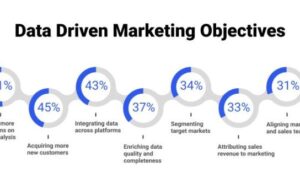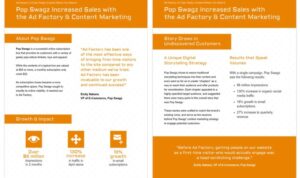Using Social Listening Tools sets the stage for this enthralling narrative, offering readers a glimpse into a story that is rich in detail with american high school hip style and brimming with originality from the outset.
In today’s digital age, social listening tools have become indispensable for businesses looking to understand customer sentiment, gather market insights, and monitor brand reputation. Let’s dive into the world of social listening tools and explore their impact on business success.
Introduction to Social Listening Tools: Using Social Listening Tools
Social listening tools are platforms or software that allow individuals or businesses to monitor and analyze conversations and trends happening on social media platforms. These tools enable users to track mentions of specific s, brands, or topics across various social media channels.
Primary Purpose of Using Social Listening Tools
- Gain insights into customer sentiment and feedback.
- Monitor brand reputation and track online mentions.
- Identify trends and topics relevant to the target audience.
- Competitor analysis and benchmarking.
Importance of Social Listening in the Digital Age
Social listening is crucial in today’s digital age as it allows businesses to stay connected with their audience, understand their needs and preferences, and adapt their strategies accordingly. It helps in proactive crisis management, identifying opportunities for engagement, and driving data-driven decision-making processes.
Popular Social Listening Tools in the Market
- Hootsuite: Known for its comprehensive social media management features.
- Brandwatch: Offers advanced analytics and AI-driven insights.
- Sprout Social: Focuses on engagement and customer relationship management.
- Talkwalker: Provides real-time monitoring and sentiment analysis.
Benefits of Using Social Listening Tools

Social listening tools offer a wide range of benefits for businesses looking to improve their marketing strategies and customer engagement. By analyzing conversations and trends on social media platforms, these tools provide valuable insights that can drive decision-making and enhance brand reputation.
Understanding Customer Sentiment
Social listening tools help businesses understand how customers feel about their products or services. By monitoring mentions, comments, and reviews, companies can gain valuable insights into customer sentiment, identifying areas for improvement and addressing customer concerns proactively. For example, a company may use social listening tools to track customer feedback on a new product launch, allowing them to make necessary adjustments based on the feedback received.
Gathering Insights for Market Research
Social listening tools enable businesses to gather real-time data on consumer preferences, trends, and behaviors. By analyzing conversations and interactions on social media, companies can identify emerging market trends, competitive insights, and consumer needs. This information can inform product development, marketing campaigns, and overall business strategy. For instance, a company may use social listening tools to track discussions around a specific industry topic to identify key trends and opportunities for growth.
Monitoring Brand Reputation, Using Social Listening Tools
One of the key benefits of social listening tools is the ability to monitor brand reputation effectively. By tracking mentions of their brand across social media platforms, businesses can quickly address any negative feedback or crises that may arise. By responding promptly and appropriately to customer concerns, companies can protect and enhance their brand reputation. For example, a company may use social listening tools to monitor mentions of their brand during a PR crisis, allowing them to manage the situation effectively and maintain a positive brand image.
Examples of Business Benefits
– Company A used social listening tools to identify key influencers in their industry and collaborated with them on a successful marketing campaign, resulting in increased brand visibility and engagement.
– Company B utilized social listening tools to track customer feedback on a new product launch and made necessary improvements based on the insights gathered, leading to higher customer satisfaction and repeat purchases.
– Company C monitored social media conversations around a competitor’s product launch and identified gaps in the market that they could capitalize on, resulting in a successful product launch and increased market share.
Features and Functionality of Social Listening Tools

Social listening tools offer a variety of key features that help businesses monitor and analyze online conversations. These tools provide insights into customer sentiment, brand reputation, industry trends, and competitor analysis. By harnessing the power of social media data, organizations can make informed decisions and improve their marketing strategies.
Key Features of Social Listening Tools
- Real-time monitoring of social media platforms like Facebook, Twitter, Instagram, and LinkedIn.
- Sentiment analysis to gauge the emotional tone of online conversations about a brand or topic.
- Competitor tracking to compare performance metrics and identify areas for improvement.
- Influencer identification to connect with key individuals who can amplify brand messages.
- Customized reporting and analytics to measure the impact of social media efforts.
Comparison of Social Listening Tools
- Sprout Social: Offers a user-friendly interface with robust reporting capabilities.
- Brandwatch: Known for its advanced sentiment analysis and AI-powered insights.
- Hootsuite: Provides social media management tools along with listening features.
- Talkwalker: Focuses on real-time monitoring and crisis management for brands.
How Sentiment Analysis is Used in Social Listening Tools
Sentiment analysis helps businesses understand how customers feel about their brand, products, or services. By analyzing the tone of online conversations, social listening tools can categorize sentiment as positive, negative, or neutral. This information allows companies to respond effectively to customer feedback and improve their overall reputation.
Real-time Monitoring with Social Listening Tools
Social listening tools enable real-time monitoring of social media platforms, allowing businesses to stay updated on trending topics, customer feedback, and industry news. By tracking mentions and conversations as they happen, organizations can respond promptly to issues, engage with customers, and capitalize on opportunities in the digital landscape.
Best Practices for Utilizing Social Listening Tools
When it comes to making the most out of social listening tools, having a solid strategy in place is key. From setting up alerts to analyzing data and integrating insights into marketing campaigns, there are several best practices to follow for effective utilization.
Designing an Effective Strategy
- Define your goals and objectives for using social listening tools.
- Identify the key metrics and KPIs you will be tracking.
- Segment your audience to ensure targeted monitoring.
- Establish a workflow for capturing, analyzing, and acting on insights.
Setting Up Alerts and Notifications
- Create alerts for brand mentions, industry trends, and competitor activity.
- Adjust alert settings to ensure you receive timely and relevant information.
- Utilize Boolean search operators to refine your alerts for better accuracy.
Analyzing and Interpreting Data
- Look for patterns, trends, and sentiment in the data collected.
- Identify key influencers and brand advocates within your audience.
- Use social listening tools to gain insights into customer preferences and pain points.
Integrating Insights into Marketing Campaigns
- Use social listening data to inform content creation and messaging strategies.
- Tailor your campaigns based on real-time feedback and audience interactions.
- Monitor campaign performance and adjust strategies based on social listening insights.
Case Studies on Effective Use of Social Listening Tools
Implementing social listening tools can have a significant impact on a business’s success. Let’s explore some case studies that demonstrate the effectiveness of utilizing these tools.
Improving Customer Satisfaction
Social listening tools have revolutionized the way businesses interact with their customers. One such case study involves a leading retail company that used social listening to monitor customer feedback across various social media platforms. By analyzing conversations and sentiment, the company was able to identify recurring issues and trends that were affecting customer satisfaction. As a result, they were able to make necessary improvements to their products and services, leading to a noticeable increase in customer satisfaction levels.
Business Crisis Management
Another compelling case study showcases how social listening tools helped a well-known airline company navigate a crisis situation. When a major PR incident unfolded online, the airline used social listening to track real-time conversations and sentiment surrounding the issue. By promptly addressing concerns and providing transparent communication, the airline was able to mitigate negative publicity and restore trust among its customers. This demonstrates the crucial role social listening tools play in effective crisis management.
Actionable Insights
One more case study highlights a tech startup that leveraged social listening tools to gain actionable insights for their marketing strategy. By monitoring online discussions and competitor activities, the startup identified key trends and preferences within their target audience. This enabled them to tailor their messaging, launch targeted campaigns, and stay ahead of the competition. The use of social listening tools not only enhanced their marketing efforts but also contributed to overall business growth and success.






